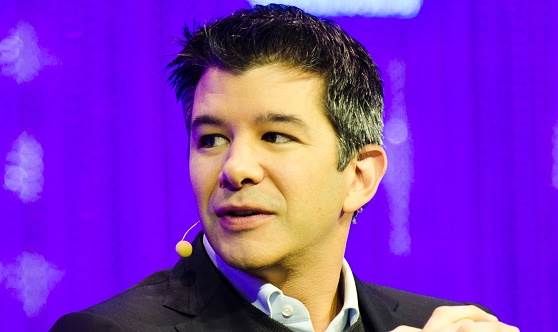Uber drivers will now have to pay GST on all earnings after the ride-sharing giant lost a landmark court case in Australia last week.
It comes as the tech behemoth faces intense scrutiny over its “destructive” internal culture following a former employee’s explosive allegations of the systemic covering up of sexual harassment in the workplace.
Uber lost its fight against the Australian Taxation Office in the Sydney Federal Court, with the judge ruling that all Australian UberX drivers must pay GST on every dollar they earn, the same rule that applies to taxi drivers.
The ATO first announced its crackdown on Uber in August 2015, and while the appeal was in process, the company increased its fares by 10% to compensate its drivers.
The case revolved around the definition of a taxi driver in the GST Act and whether Uber drivers are included in this. Under the Act, all taxi and limousine drivers have to pay GST on earnings, even if they earn less than $75,000 annually.
Uber has long argued that its offering doesn’t constitute a taxi service and that its drivers should be exempt from having to pay GST, but Justice John Griffiths disagreed.
“Broadly construed, and having regard to other relevant matters of construction, I consider that the word ‘taxi’ is sufficiently broad in its ordinary meaning to encompass the UberX service supplied,” Justice Griffiths said in the ruling.
It comes as welcome news to the Australian taxi industry, with Uber currently taking about $31 million in revenue from traditional taxis each year.
Uber is “disappointed” with the ruling and is currently considering its options, a spokesperson said.
Uber has been progressively legalised and regulated in states and territories around Australia but has still battled with governments over taxation issues.
The legal loss compounded what was already a dire week for the ride-sharing pioneer after a detailed blog post by former employee Susan Fowler alleged numerous cases of sexual harassment and the company’s attempts to cover it up.
“It was an organisation in complete, unrelenting chaos,” Fowler said in a post entitled 'Reflecting on one very, very strange year at Uber'.

Uber CEO Travis Kalanick. Photo: Heisenberg Media
She claimed that this culture pervaded the company, with many other female employees sharing similar stories.
“Some of the women even had stories about reporting the exact same manager I had reported, and had reported inappropriate interactions with him long before I had even joined the company,” she said.
“It became obvious that both HR and management had been lying about this being ‘his first offence’, and it certainly wasn’t his last.”
Fowler said that in the time she was at Uber, the percentage of female employees dropped from 25% to just 3%.
The post received widespread attention and placed the spotlight on Uber’s internal culture and treatment of women. Uber CEO Travis Kalanick has responded to the post, claiming the allegations in it are “abhorrent and against everything Uber stands for” while announcing a review into the company’s diversity and inclusion.
Uber board member and Huffington Post founder Arianna Huffington has also responded to the claims, saying she had already met with Kalanick to discuss the next steps.
“Travis spoke very honestly about the mistakes he’s made -- and about how he wants to take the events of the last 48 hours to build a better Uber,” Huffington said in the statement.
“Change doesn’t usually happen without a catalyst. I hope that by taking the time to understand what’s gone wrong and fixing it we can not only make Uber better but also contribute to improvements for women across the industry.”
Uber has even lost the backings of some of its earliest investors, with Mitch and Freada Kapor slamming its “destructive culture”.
“Uber’s outsize success in terms of growth of market share, revenues and valuation are impressive, but can never excuse a culture plagued by disrespect, exclusionary cliques, lack of diversity, and tolerance for bullying and harassment of every form,” the Kapors wrote in a letter to Uber.
Denham Sadler is a freelance journalist and editor based in Melbourne.










